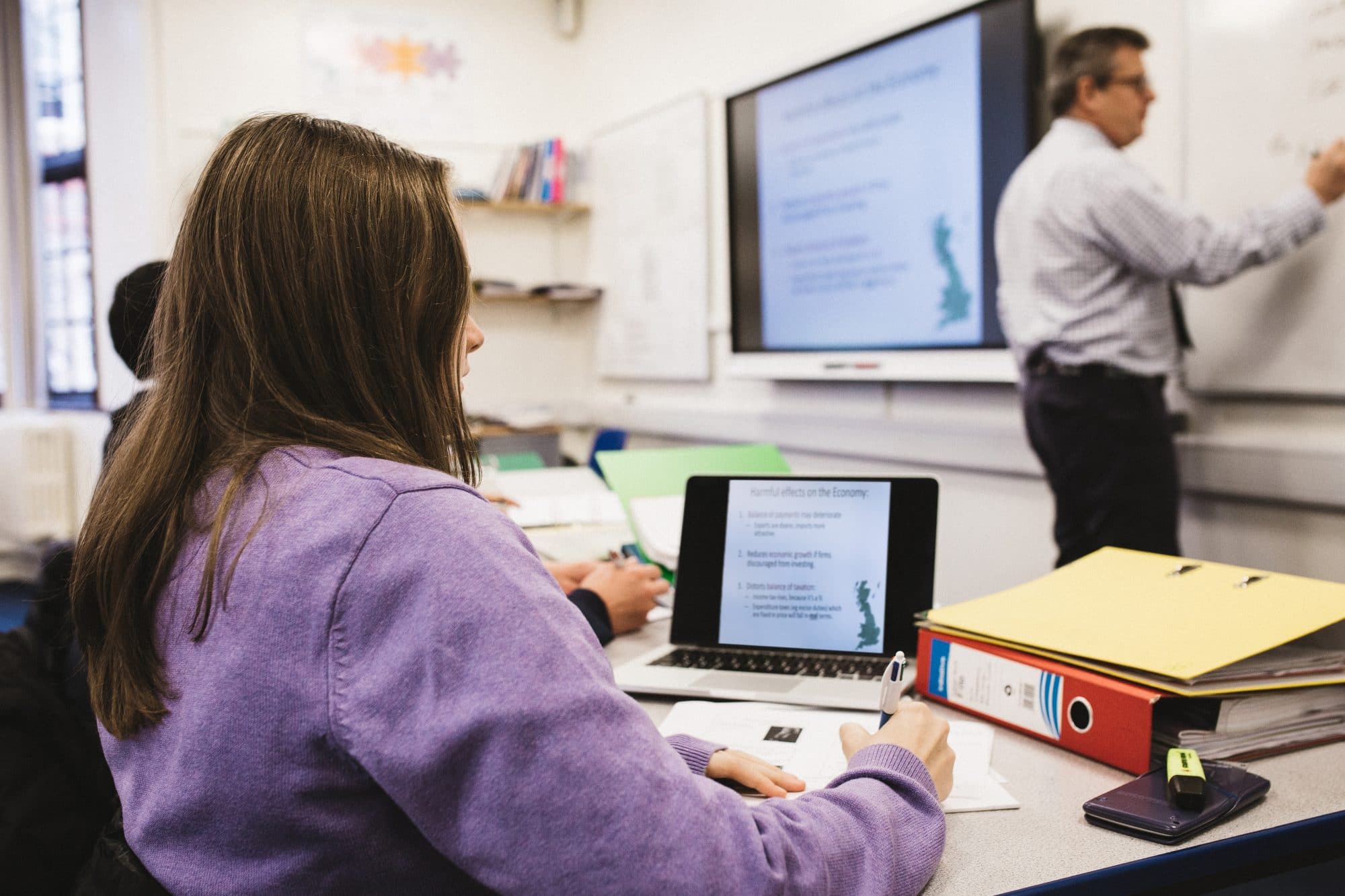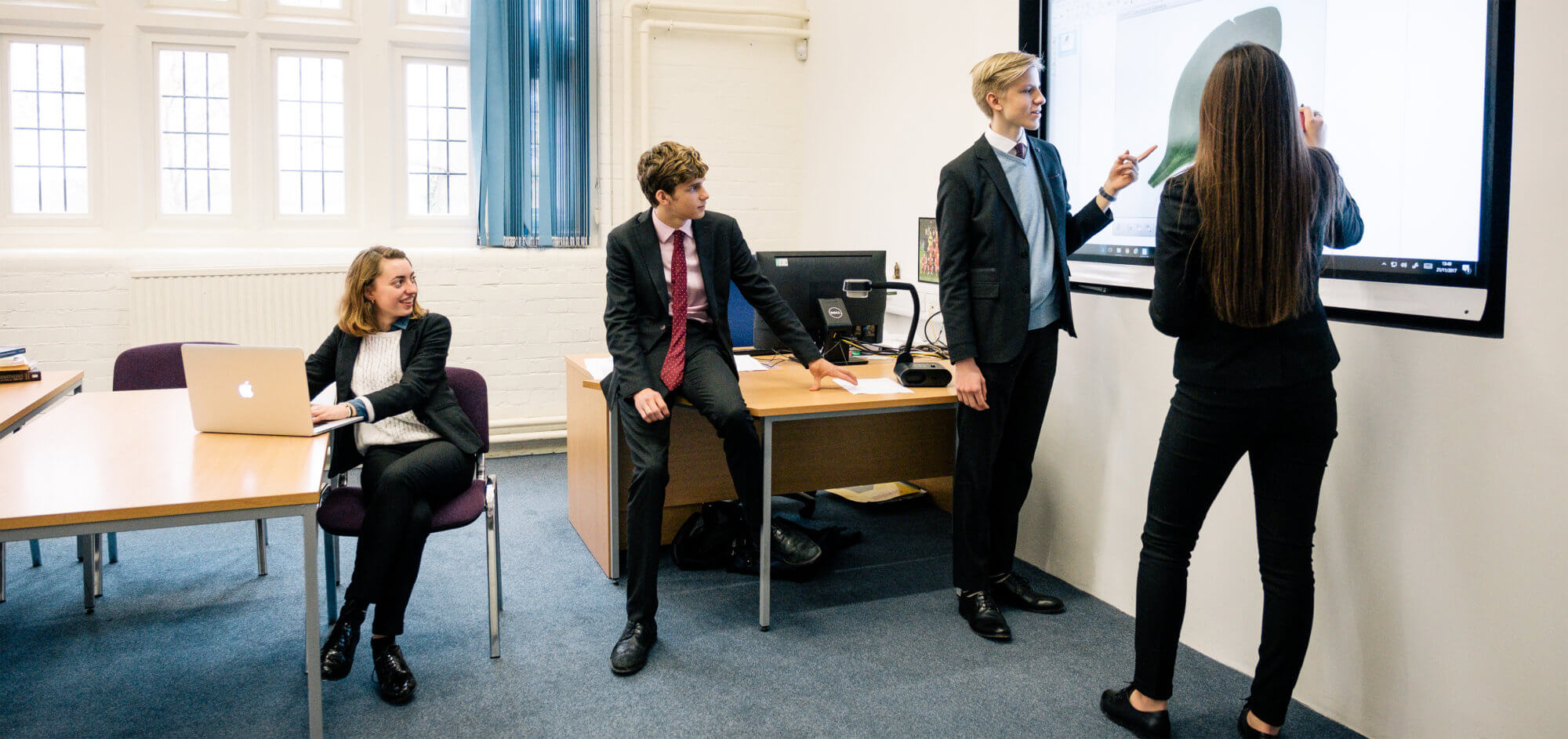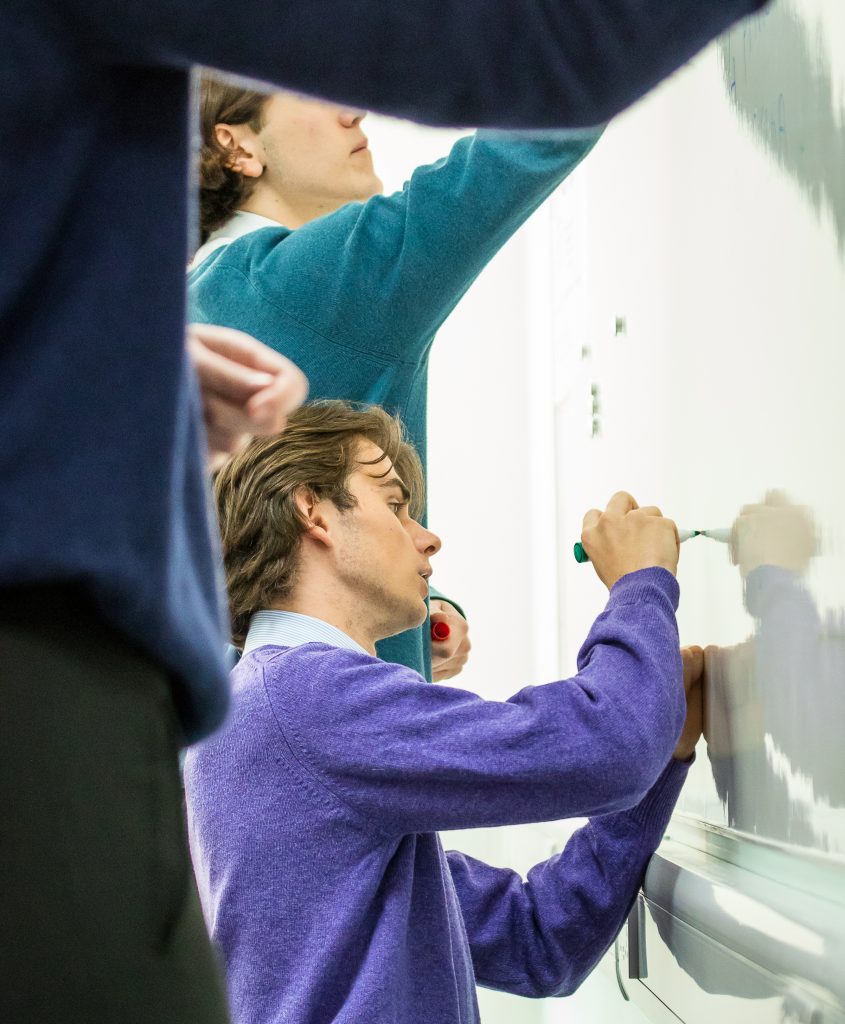
Plato suggested that to “know” something is to have a “justified, true belief”. His point of view is not universally approved but we plant an important flag if we persuade young minds that claims have to be properly justified to be taken seriously as knowledge.
How we gain knowledge
In Theory of Knowledge (TOK), pupils examine the ways in which we gain knowledge (specifically: perception; reason; language; intuition; imagination; faith; emotion; memory) and discuss the circumstances under which knowledge acquired by these means can count as “justified, true belief”.
Pupils’ experience of TOK may begin with confusion and frustration, but […] many pupils finish their IB course saying TOK was the thing they enjoyed most of all.
At first sight, the status of knowledge built on some of these foundations seems easily dismissed. Knowledge that the campaign for same-sex marriage is mistaken, because intuition tells one that homosexual acts are wrong, demonstrates the weakness of intuitive knowledge. Yet pupils watching a finger move to touch a pen, and seeing the pen then move, are eventually bound to admit that the only way they can know the pen moved because the finger moved it, is for the reason that it is intuitively obvious this is what happened.
Thinking vs learning
Initially, the Lower Sixth IB pupil finds the issues in TOK confusing and frustrating. The IBDP Board recognises that what is in discussion takes time to be assimilated and requires that those following the Diploma course spend 100 hours of curriculum time reflecting on the issues.
Judged against the immediate benefits of successful study (a maximum of three points in the Core if a candidate secures at least an A and a B in TOK and the Extended Essay) this seems a great deal of curriculum time; to many it seems excessive. However, during a conference at the New College of the Humanities, Professor. A.C. Grayling emphasised the importance of teaching young people to think – and not merely learn – and suggested the true value of TOK is found in improved performance at university, rather than during the programme itself.
Creating autonomous thinkers
The evidence suggests that those pupils who commit to TOK do make significant strides as autonomous thinkers, strides they would otherwise not have made: the quality of the work they produce in end-of-course assessments means that they leave Bradfield well equipped in critical argument and ready for the higher challenges of university.
By the end of the TOK programme, those who began confused and frustrated are able to write persuasively on puzzling questions, such as these:
- “The whole point of knowledge is to produce both meaning and purpose in our personal lives.” To what extent do you agree with this statement?
- “There is no reason why we cannot link facts and theories across disciplines and create a common groundwork of explanation.” To what extent do you agree with this statement?

Work pupils complete for the assessed Presentation is, arguably, even more of an indicator of the TOK programme’s success in stretching pupils. Candidates choose their own topic in this part of the assessment, and then apply principles they have discussed in TOK to an analysis of what actually can be known about the matter they have chosen to talk about. For example, persisting claims that Elvis Presley is still alive gave rise to a discussion of the extent to which we can know whether our tendency to discount conspiracy theories is reasonable.
Political language […] is designed to make lies sound truthful … and to give an appearance of solidity to pure wind.
George Orwell
Pupils’ experience of TOK may begin with confusion and frustration, but it is testimony to the extent to which Sixth Form pupils can be stretched to think independently in a logical and systematic way on a wide range of difficult matters, that the TOK programme leads. Not only to pupils grasping hard ideas, but also finding pleasure in thinking about and applying them. Many pupils have finished their IB course saying TOK was the thing they enjoyed most of all.



